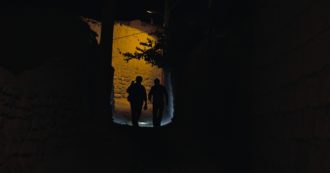Pupi Avati the more it goes on with the years the more it returns to a free, ancestral, dark cinema which resembles the one that distinguished him in the first years of his career. His Dantewhich after a week suddenly finds itself on the top step of receipts in Italy – ahead of Drought And Don’t worry Darling – is a largely successful film, dirty and mephitic, visceral and poetic. A very earthly Dante, no longer mythicizable in his tired benign repetition to the bitter end, the one imagined and created by Avati. A Dante son of misery and of the roadimmersed in the mud of the Florentine vulgar two / fourteenth century, overwhelmed around him and on himself by the pustules of the plague and the wounds of scabies.
Dante it’s kind of a spin off of that Magnificat that Avati made in 1993, a medieval historical film where the dim light of the sacred merged with the shadows of the evil one, intensifying the Bakhtinian concept of the “material-bodily low”. Dante, it is precisely as he had sprung up from there. Visually raw, violent in its own way, authentically vulgar (Dante’s ass pooping before the battle against the Ghibellines or going to prostitutes before sleeping), Avati’s film develops around an attempt to reconstruct the life of the great poet made by Boccaccio (Sergio Castellitto) in 1350, almost thirty years after his death, with the author of the Decameron who, deferential and devout, tries to return ten gold florins as a symbolic compensation for ungrateful Florence. , to Beatrice, daughter of the exiled Dante, a silent nun in a convent in Ravenna.
The possibility for Avati is tempting to recall some salient episodes in the life of the young Alighieri (Alessandro Sperduti), starting from the exchange of glances and the propagation of ardor between the poet and the acclaimed Beatrice (Carlotta Gamba), the complex and suicidal antipapal political position, up to the torment of exile and the drafting of the Divine Comedy. Avati proceeds in small tears, stratified emulsions of brown and ocher, tattered, dirty and emaciated clothes, friendships that mottle turbid in individual opportunism and that relationship of love with the beloved that vibrates in the famous verses that we all know but also in hallucinated visions of diabolical temptation (there is also a chewed and bleeding heart a la Robert Eggers) that favor a topical of Avatian cinema, sex that insinuates itself as mephitic as a sense of guilt. The mortuary humus that permeates, despite the budded flashes of rhymes and verses, the film is finally evident both in depicting medieval darkness without material discounts beyond fearful spirituality, but also in the final act of the poetic composition of the protagonist who ends up to be “a book of the dead alone”. Avati also slips a couple of numbers into the staging: a kind of field and reverse shot just after Dante’s death between the shot of the starry sky and the crooked and ugly choir upside down; the “animation” with the faces of the actors in a real painting (the title escapes us, we apologize) with Giovanni XXII who gladly celebrates the death of the heretic Dante. Castellitto holds back, and at the same time intensifies to the limit, Boccaccio’s devotion by stemming any possible gaping from a double temporal plane. Infinite cameos, we mention a few: Enrico Beruschi, Leopoldo Mastelloni, Mauro Coruzzi / Platinetteand the late Avatian fetish actor Gianni Cavina.

